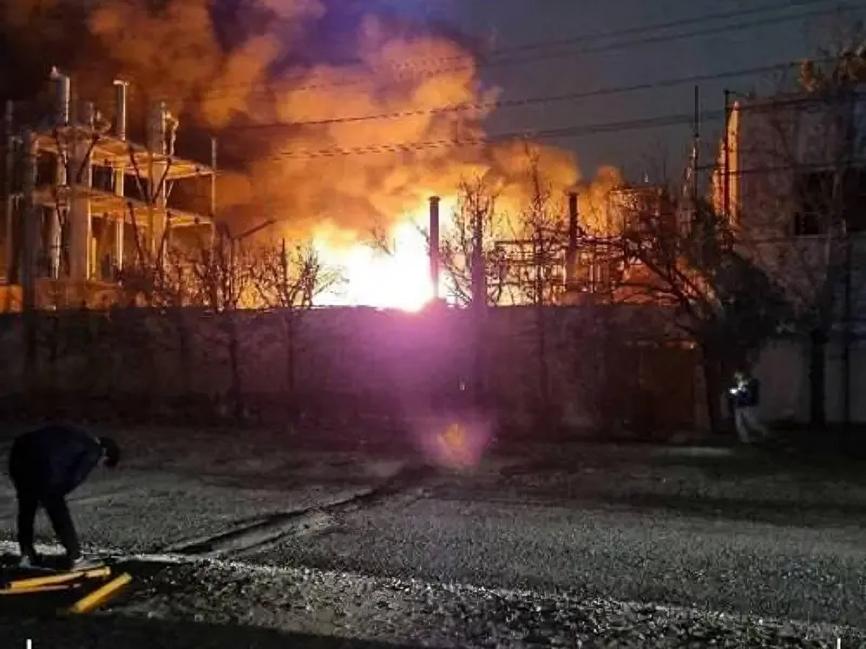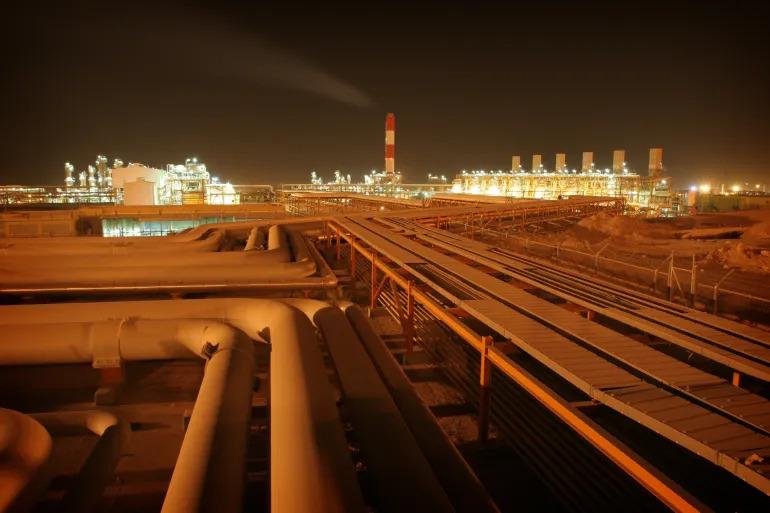The explosion of Iran's pipelines Accident or sabotage?
On February 15, a huge explosion occurred at a chemical factory, apparently a solvent manufacturing facility, in Shahriyar, about 30 kilometres west of Tehran's capital. According to the local media, several fuel tanks exploded at the factory owned by Salar Chemistry Company.
Shortly after the explosion in the factory, Iran's leading gas pipeline network running from Iran’s central Chaharmahal and Bakhtiari province north to major gas fields in the Caspian Sea was struck by at least two explosions at different locations, as the authorities labelled it as sabotage.
The targeted pipeline is the main conduit for transporting natural gas from refineries in the Persian Gulf to major cities, including Tehran, Esfahan, and Mashhad. These explosions resulted in the closure of roads in the surrounding areas for hours.
As a result, the operating company announced a partial gas shutdown in industrial zones of the province neighbouring the capital Tehran. In Zanjan province, gas supply to government facilities was cut off, and industrial gas consumption was restricted.
Iran produces about a billion cubic meters of gas a day and has some of the largest proven reserves in the world, at about 30 trillion cubic meters, as well as a large network of pipelines also used to export gas to Iraq and Türkiye.

The blasts come amid raised tension as Israel’s war in Gaza threatens to spill over across the region. While Tehran has not specified who it suspects, it has linked other such incidents to Israel over the years.
In recent years, Israeli intelligence has actively been targeting Iranian nuclear and military facilities across the country by orchestrating the assassination of high-level military figures and nuclear scientists both inside and outside of the country. Israel has also waged cyberattacks to disable servers belonging to the oil ministry, causing turmoil at gas stations nationwide.
Two decades ago, usual suspects behind such attacks usually were ethnic Arab separatists in southwestern territories, though on much smaller scales. The recent attacks were likely aimed at damaging Iran's energy infrastructure and stirring domestic discontent.
According to scholars and experts, the perpetration of such a deadly attack on a pipeline requires a deep knowledge of the Iranian energy infrastructure network, as two pipelines were hit in multiple locations at the same time. However, there are no known insurgent groups operating in that province, home to the Bakhtiari, a branch of Iran’s Lur ethnic group.
Consequently, the sabotage was intended to take out about 40 per cent of the country's gas transmission capacity. How the pipelines were struck — with drones, explosives attached to pipes, or some other means — remains unclear.
Although the Israeli government did not issue any public statement regarding the explosion, it comes as no surprise in Iran and the West amid the violent war in the Gaza Strip between Israel and Hamas militants.
As one of the leading proxy forces of the pro-Iranian network, Hamas launched an unprecedented attack against Israel on October 7, 2023, that left hundreds dead behind. The attack provoked a larger reaction from Israel that resulted in the total destruction of the Gaza Strip and triggered international condemnation.

Moreover, Iranian-linked groups, like Yemen's Houthis and Lebanon's Hezbollah, have launched attacks on Israel and shipping in the Red Sea in what they say is intended to defend Palestinians.
Indeed, the Israel-Iran standoff goes beyond the simple infrastructure explosions and assassinations of scientists. The war in Gaza had already spiralled to Lebanon, Syria, northern Iraq, and Yemen, threatening to turn into a wider regional war with the involvement of more state and non-state actors.
Iranian authorities did not provide detailed information regarding the incident and its outcomes despite the criticism at home. Instead, some local officials and authorities compared the attack to a series of mysterious and unclaimed assaults on gas pipelines in 2011 — including around the anniversary of Iran’s 1979 Islamic Revolution.
The pipeline blasts will unlikely have a long-term impact on Iran's energy infrastructure and economy compared to the most recent violent protests, economic crisis, and earthquakes that filled the local people's discontent.
Notwithstanding, amid the Gaza war, Israel will likely keep similar sabotage operations against Iran and proxy forces in its close vicinity to distract Tehran, forcing it to divert military resources.








